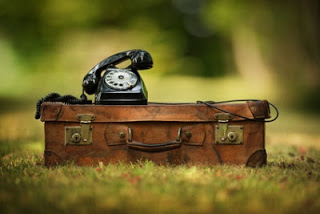
It’s Sunday evening and my kids and I have just finished a Skype call with my mom. She is in Athens and we are in Zurich. We try to have these calls at least once a week. My children take turns parading on my mom’s tablet screen, the timing and duration of their appearance depending on the importance of the distraction – suddenly “remembered” homework for tomorrow, texting with friends or finishing up that “last” video game. Besides the weekend Skype sessions, my mother and I talk on the phone every morning. I call her from my car, when I’m on my way back from the last school drop-off. She waits for my call so that she can get on with her day. We chat about the day that passed, about what’s ahead, about how we feel, about the weather. Nothing of extreme significance, just normal everyday stuff, stuff you talk about over morning coffee – only our respective coffee cups are a few thousand kilometers apart. It’s winter, so these days she concludes our call by telling me to makes sure I dress warm – the same way she would if I was in Athens, going out of the house and she was at the door saying goodbye.
I have been away from home for almost 20 years but have always had regular contact. The actual rituals have evolved, of course. Talking daily, as we do now, was not always possible. Phone calls were expensive, especially when my family and I were on different
continents. There was no Skype nor smartphones that would allow us to talk for free or see each other even when we are not at home. Still, whether it was through letters, faxes or weekly calls, I remember us being as much part of each other’s lives as we are now.
I often wonder if I was more homesick then; if I felt more disconnected from my family and friends when I did not have the privilege of instant access. Does being able to virtually see and hear my mother every day, sometimes multiple times per day, lighten the pain of separation? Or is the illusion of closeness created by technology just that – an illusion?
I was discussing this with a friend and she told me that, although she loves being so connected to the people in her life, she finds that the effortlessness of communication that has become standard nowadays – at least in the developed world – makes us feel that we are part of each other’s lives, when we are not. And how can we, she added, if we are not there physically?
At the same time, all that virtual connection can distract us from engaging with real life,
especially relationships. The time we invest in being up to date virtually often means less time available for being present in the real world. This is true whether we are expats or not; but for expats engaging is crucial, relationships are crucial. No wonder some of us end up isolated and lonely. And, as I read recently in an
article, loneliness is not only unpleasant; it is unhealthy, even deadly sometimes.

I have kept some of the letters I exchanged with my parents back in the “old days” – the first few
years after I left home. We used to fax them back and forth, since fax was the most immediate means of communication at the time. I was surprised at the depth of some of the conversations I had with my dad – about life, about where we come from and where we want to go; at the advice and love pouring out of those faxes, both always in large doses. I found recipes my mom faxed to me when I needed ideas for a dinner party I was hosting. I found more letters from my parents congratulating me on a success, consoling me when I was heartbroken. So many details about our respective lives that I had almost forgotten; immortalized, just because they are on paper.
So yes, I am slightly less homesick now that we talk every day. It means a lot, knowing that I can always pick up the phone and connect. But there are also times when being a phone call away – and not there – makes me even lonelier than I was in the “old days.”
 I have kept some of the letters I exchanged with my parents back in the “old days” – the first few
I have kept some of the letters I exchanged with my parents back in the “old days” – the first few









